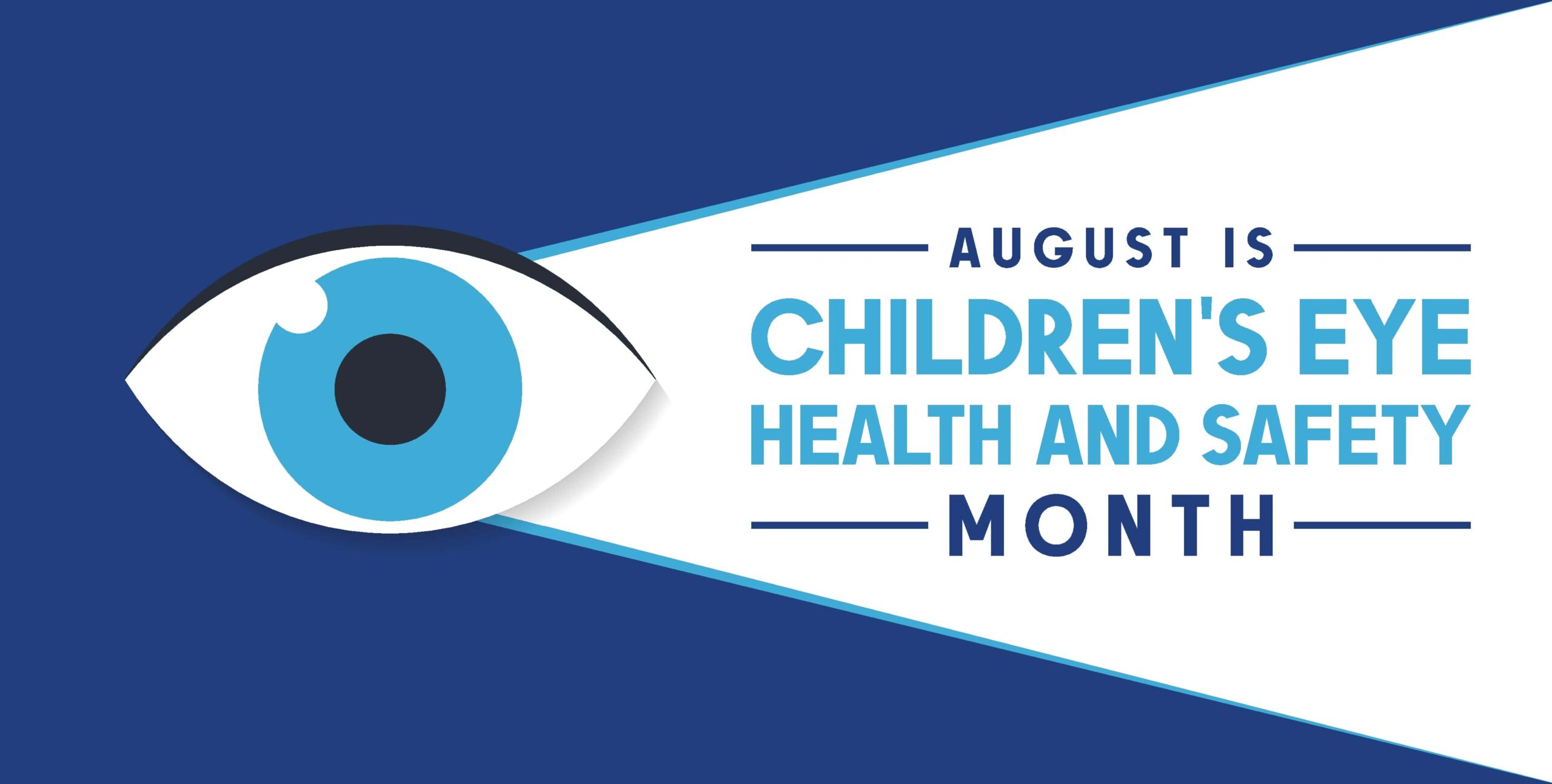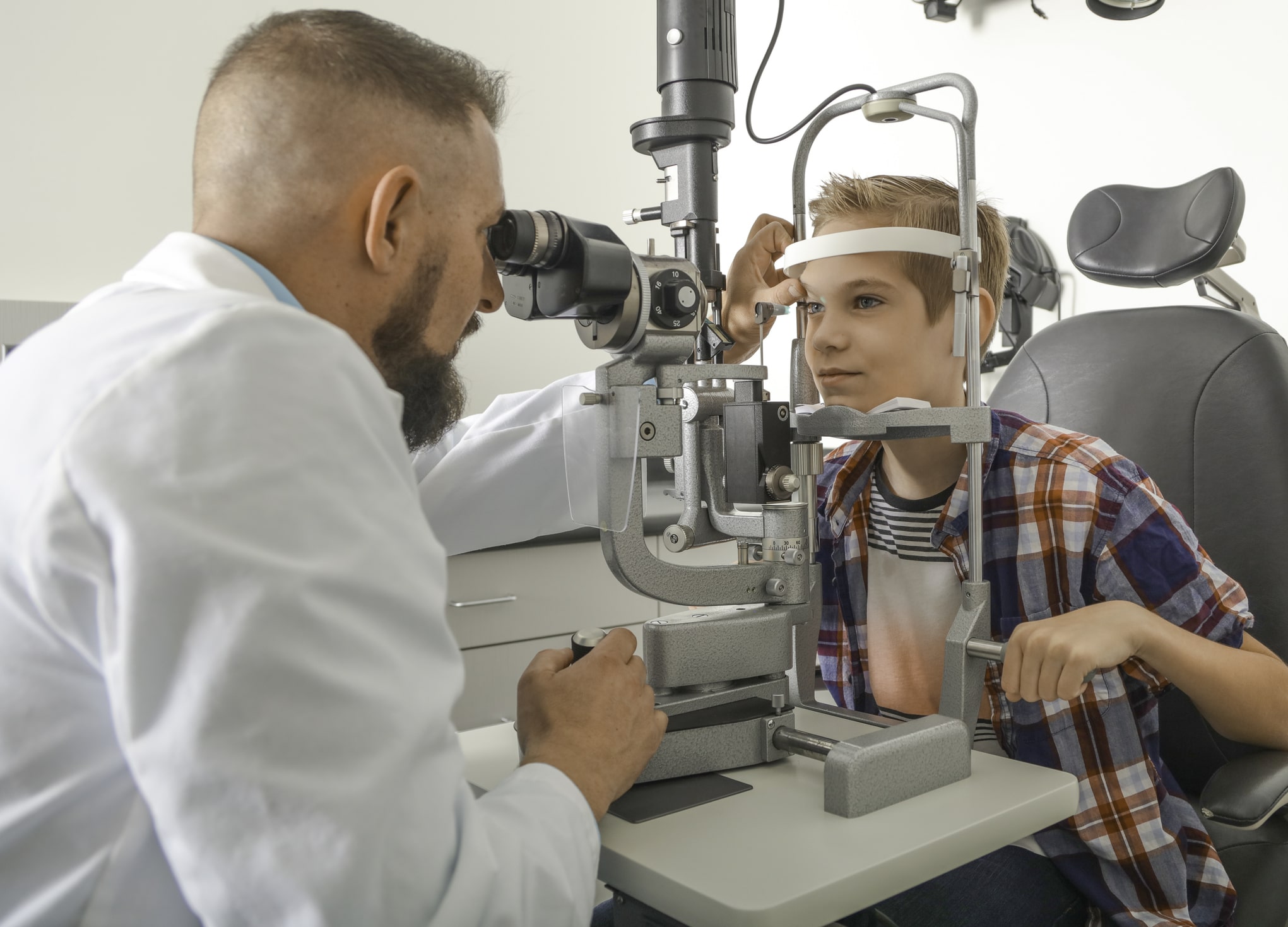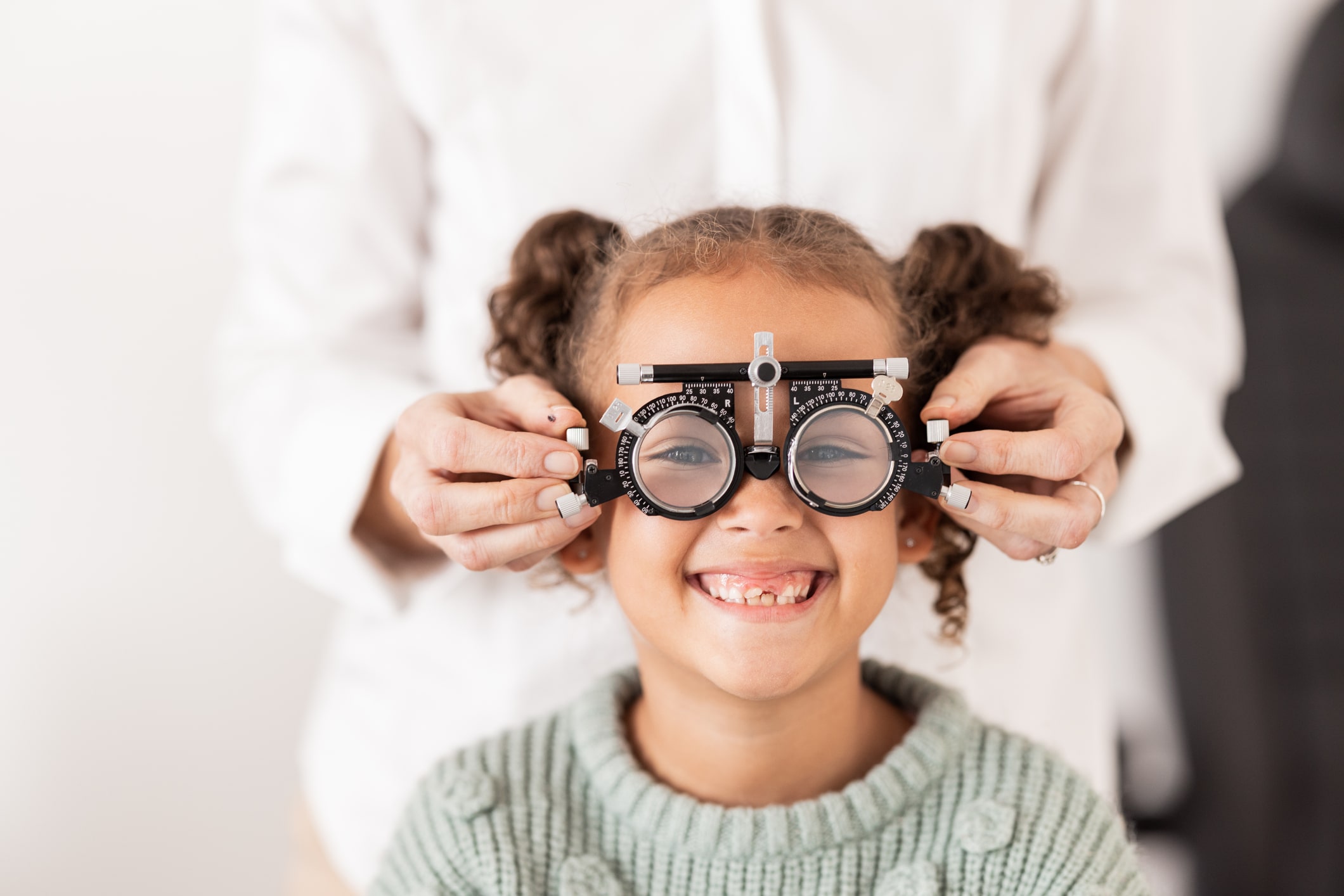August is Children’s Eye Health and Safety Month, a time to focus on the importance of eye care and safety for kids. As the new school year starts, ensuring children have healthy eyes for their learning and social interactions is crucial. Regular eye exams and protective eyewear for sports and outdoor play can help prevent vision problems and injuries. Many children have undetected vision problems that can significantly impact their lives if not treated.
At Florida Eye, we want to help parents understand the importance of eye care for kids. Our team of experts is ready to guide you on how to keep your child’s eyes healthy. Please take advantage of Children’s Eye Health and Safety Month by scheduling an eye exam for your child and learning more about protecting their vision for a bright future.
Common Vision Problems in Children
Early detection is crucial, as many conditions if left untreated, can lead to permanent vision loss or impairment. Some of the most common vision problems in children include:
- Amblyopia (Lazy Eye): Commonly known as “lazy eye,” amblyopia is a condition in which one eye develops weaker visual acuity than the other. If untreated, it can lead to permanent vision loss.
- Strabismus (Crossed or Wandering Eyes): Strabismus is a condition where the eyes are not correctly aligned. Misaligned eyes can cause double vision and depth perception issues.
- Refractive Errors: Refractive errors, which include conditions like nearsightedness, farsightedness, and astigmatism, affect a child’s ability to see clearly.
- Color Vision Deficiencies: Commonly referred to as color blindness and more prevalent in boys, it makes it difficult for some children to distinguish between specific colors.
The Importance of Regular Eye Exams for Children
The American Optometric Association recommends eye exams at six months old, three years old, before your child starts kindergarten, and annually once in school. These exams assess visual acuity, eye coordination, muscle function, and overall ocular health.
By catching vision problems early, we can implement appropriate interventions to help children achieve their full visual potential and avoid long-term consequences.
Warning Signs of Vision Problems in Children
Parents should watch for warning signs that may indicate vision issues, such as:
- Misaligned eyes (one eye turning in or out).
- Frequent eye rubbing or squinting.
- Head tilting or covering one eye to read or watch TV.
- Complaints of blurry vision, double vision, or headaches after close-up work.
- Light sensitivity or glare issues.
- Avoiding reading or other close-up activities.
If you notice these signs, promptly schedule an eye exam with Florida Eye.
Protecting Children’s Eye Health and Safety
Besides regular eye exams, parents can take steps to safeguard children’s eye health:
- Toy and Playground Safety: Ensure age-appropriate toys and play equipment without sharp parts. Encourage protective eyewear during physical activities.
- Proper Lighting and Digital Device Usage: Provide good lighting for reading and limit screen time to prevent eye strain. Use the 20-20-20 rule: take a 20-second break every 20 minutes to look at something 20 feet away.
- Sun Protection: Have children wear UV-blocking sunglasses or hats with brims outdoors.
- Hygiene and Safety Practices: Teach proper handwashing and avoid touching eyes with unclean hands to prevent infections. Don’t share personal eye care items.
- Balanced Diet: Ensure your child eats a diet rich in fruits, vegetables, and omega-3 fatty acids, which are beneficial for eye health.
- Hydration: Encourage your child to drink plenty of water to maintain optimal eye moisture and function.
- Outdoor Play: Spending time outdoors has been shown to reduce the risk of developing myopia (nearsightedness). Encourage at least an hour of outdoor play each day.
Eye Safety in Sports and Activities
Children are often active in sports and recreational activities with a higher risk of eye injury. Ensuring eye safety during these activities is essential:
- Protective Eyewear: Equip your child with appropriate protective eyewear for sports like basketball, soccer, and baseball. Regular glasses or sunglasses need to offer adequate protection.
- Supervised Play: Ensure play areas are safe and free from hazards that could cause eye injuries, such as sharp objects or low-hanging branches.
- First Aid Knowledge: Educate your child on basic first aid for eye injuries, such as not rubbing the eye if something gets into it and seeking help from an adult immediately.
The Impact of Uncorrected Vision Problems
Untreated vision issues can significantly impact a child’s development, academic performance, and social interactions. Vision problems can interfere with reading, writing, and other educational activities. Studies show that 80% of what a child learns in school is presented visually. This means that undetected vision issues can lead to academic struggles, misdiagnosis of learning disabilities, and a lack of confidence in the classroom. By ensuring regular eye exams and addressing any vision problems early on, parents can help their children perform better academically and develop a love for learning.
The Role of Parents and Caregivers
Parents play a crucial role in children’s vision health by:
- Scheduling regular eye exams starting at six months.
- Recognizing warning signs of vision problems.
- Promoting eye-healthy habits.
- Educating others about children’s eye health.
By taking an active role in their children’s eye health, parents and caregivers can ensure that young eyes receive the care and attention they need to thrive and support a child’s overall development and success.
Ensure a Bright Future for Your Child
Children’s Eye Health and Safety Month reminds us of the vital role vision plays in a child’s development. As parents, caregivers, and healthcare providers, we must be vigilant, proactive, and committed to safeguarding children’s eye health.
Parents, caregivers, and healthcare providers can work together to ensure children have the best possible start in life by prioritizing eye health. Regular eye exams, healthy habits, and proper safety measures are crucial to maintaining good vision and supporting overall growth and success. This August, take the time to focus on your child’s eye health and make it a priority year-round. For more information and support, contact Florida Eye and secure a bright future for your child’s vision health.





